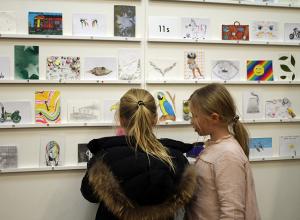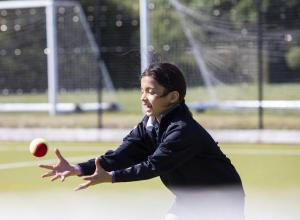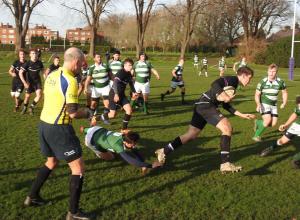
It's hard for parents when their teenagers start seeing them as a bore or an embarrassment. But, says Andy Woodward, it's vital that they know we’re still there, still available and still loving them
There was a certain recurring ‘trope’ within the TV teen dramas of my impressionable years. In every briefly trending show, from My So-Called Life to The OC, the scenario would unfold thus: parent forbids their teen from attending the dangerous party; teen sneaks out and attends the party regardless; party goes wrong and teen needs help; teen calls the parent asking for help; parent non-judgmentally drops everything and drives over to resolve the situation; teen later admits parent was right all along.
Now, as I type this it is abundantly clear that these shows were written by parents, not by teens. Hence this reads as a sort of unfolding parental fantasy where they are quickly and painlessly proved all-knowing and all-wise (even better, their adolescent child KNOWS it!). Nonetheless, it contains a key and truthful paradox. Teenagers defy and scorn their parents. Teenagers need and love their parents.
Teenagers defy and scorn their parents. Teenagers need and love their parents.
We, the teachers, see this picture on show in its entirety each time we navigate a Parents Evening. Appointment after appointment we see the senior children desperate, bursting even, for affirmation in front of mum and/or dad; that it may lead to an expression of approval and pleasure from those who formed and raised them, still the dominant presence in their lives. But, yes, there is also often considerable embarrassment on show, at times expressed unambiguously (“Dad, you’re SO embarrassing”), but more often via the eye rolls, sighs or involuntary reddening that accompany their immediate forebears attempting anything so mortifying as speaking aloud to a teacher.
This latter element is hard to bear for the parents, I’m sure. Very shortly beforehand, this mum/dad was a superhero to their offspring – who wanted nothing more than their undivided attention, their company and their cuddles. Suddenly, scales seem to have fallen from their child’s mascara-lined eyes, causing them instead to see some hybrid of jailer, bore and walking source of social humiliation. I at least will have valuable pre-experience of this when my turn comes, having already detained, bored and embarrassed generations of teenagers in a professional capacity. But it will still be bitter indeed when my own still-sweet children take that decisive and surly step away from my outstretched hand.
Shortly before this mum/dad was a superhero to their offspring... Now the scales seem to have fallen from their eyes
So far, so wistful… but there is a serious point to take on board. As teenagers do move away from their parents, slamming the bedroom door and shunning them in favour of peers and screen time, we mustn’t forget the other, less apparent, side of the paradox; teenagers need and love their parents. It matters a great deal that you look beyond the body language. There is, nowadays, almost no dissenting voice against the tide of studies showing that the parental bond remains a, perhaps the, dominant factor in optimising your adolescent child’s chances of safety and wellbeing. It is vital that they know you’re still there, still available and still loving them as much as ever you did.
To lean on one such study, ‘adolescent-parent attachment has profound effects on cognitive, social and emotional functioning… associated with less high risk behaviours, fewer mental health problems, and enhanced social skills and coping strategies’ (Moretti & Peled, 2004). It is vital that, as your teenaged child is faced with a new and bewildering array of temptations, pressures and choices, you as parents are playing your role – vigilant enough to check those more disastrous impulses, available and present enough to offer advice and comfort when sought, setting sufficiently high expectations that they provide the child with the always-necessary fallback of “No, I can’t do that… my parents would kill me”.
The parental bond remains a dominant factor in optimising your adolescent child’s chances of safety and wellbeing.
One note of warning to close. Also interesting is a 1997 study published in the ‘Adolescence’ journal, in which it was found that the lowest wellbeing and highest incidence of negative symptoms were found in youngsters subject to ‘affectionless control bonding’; i.e. low emotional engagement allied to suffocating levels of control. A wiser person than I once told me that parenting (and, with altered lexicon, perhaps teaching too) was essentially a matter of providing ‘love and boundaries’. If both are present beyond doubt, things normally progress OK. I know I spend a lot of time warning against that absence of boundaries… but perhaps worse still would be a lack of affection.
Teenagers, however forbidding their demeanour, need those cuddles perhaps more than ever.
Teenagers, however forbidding their demeanour, need those cuddles perhaps more than ever. They are, and those of us looking back at our own teenage years with any degree of honesty know it, still children… albeit children suddenly resembling grown-ups, undergoing assault from their hormones and, as evolution has dictated, beginning to pull away from the family nest. Allow them that space, but never believe the myth that they want to be left alone altogether. They still need you. They still love you. Play your cards right and, occasionally, they may even admit it…
Please feel free to provide feedback to awoodward@harrodian.com







